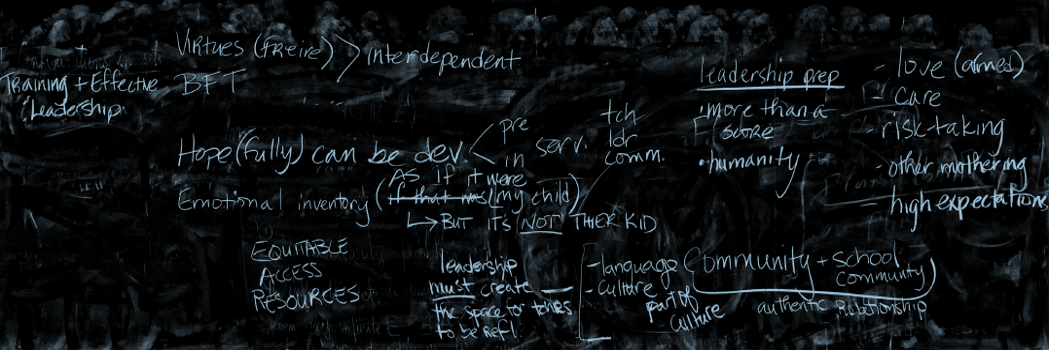As someone who has been working in education for nearly ten years now, I find that I spend the majority of my time thinking about education and the education system. It has become almost a default to blame our social ills on the school system and all of the problems within it – the inequitable distribution of resources, poor teacher preparation, etc. In the same vein, when you see the education system as the institution to blame then it simultaneously becomes the institution that we need to fix. As Miller et. al names, “The prevailing thought seems to be if we fix the schools, the rest of the ducks will fall into order, that is, employment and home ownership rates will increase, crime and drug use will go down, and so on” (Miller et. al 2011, p. 1080). The readings this week poked holes in this assumption and I am left grappling with the question: “Why do we put so much of our attention and resources into trying to fix what goes on inside low-performing schools when the causes of low performance may reside outside of the school?” (Miller et. al 2011, p. 1080). This profound reminder makes me think a lot about the need for more interdisciplinary work. Given the complexity and pervasiveness of the problem, we need to work together across disciplines in order to see and respond to the interconnected nature of oppression across all institutions. Freire reminds us of the importance of solidarity and dialogue as tools for our collective freedom and must be relied upon in order for social change to occur. He reminds us that we must hold space for both critique and hope in the fight for freedom and that above all, “love is required to maintain hope in the face of despair” (Rivera-McCutchen 2019, p. 237). While critique alone can lead to feelings of despair, love and hope provide the energy to sustain the fight and to retain a vision of possibility.
Radical Care Sp21
Teaching & Leading for Justice in Schools




Your post was very helpful to read, Lindsay! I think that a major reason why we always put the burden on schools to fix our social ills is because our schools have been so deeply de-politicized. All the other problems we deal with are very partisan and therefore exist in the realm of the political. But I think schools have been successfully discursively de-politicized. So if we blame all the issues on schools, we don’t have to make it political, it’s just seen as an objective fact. I am not totally sure if this makes sense as I am writing it. But I appreciated getting to think about it and get some thoughts down here, thanks to your post!